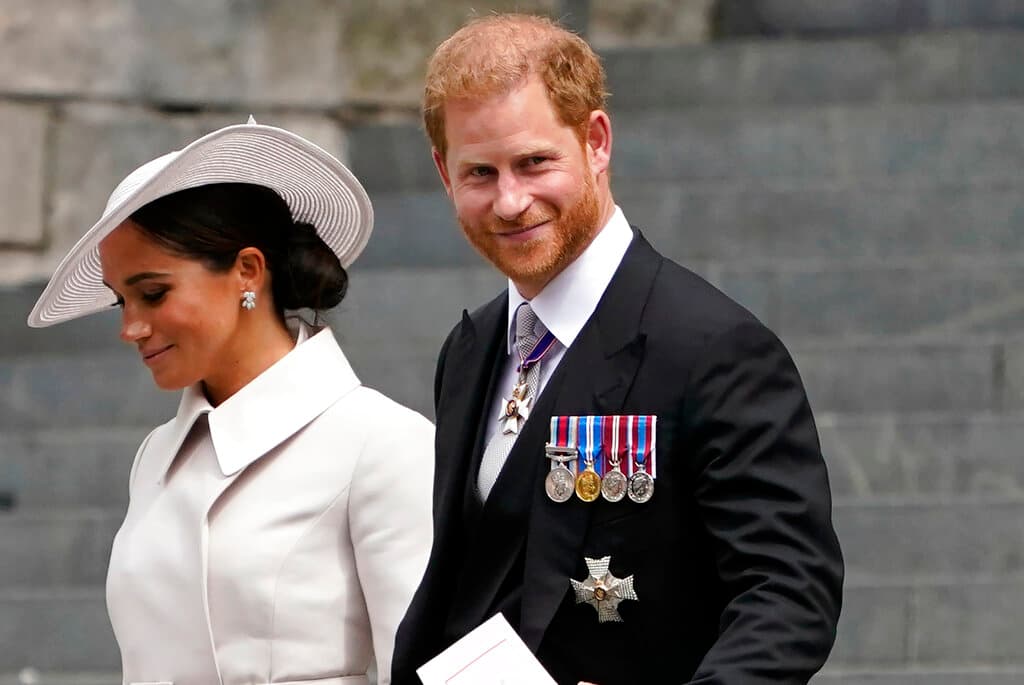Prince Harry, in Stunning Tirade at the UN, Compares U.S. to Russia
Is the disgruntled royal, sixth in line for the throne, angling for a position at the world body?

The United Nations, in a stunning demarche that is unlikely to be received well at London or Washington, yielded the podium at the General Assembly hall today to Prince Harry — to address global ills in a way that, heretofore, was left to the ministers of state of his grandmother, Elizabeth II.
Technically, it was the Nelson Mandela Foundation that invited the man who is sixth in line for the British throne to speak on global ills and attack the United States. Nonetheless, there he was, standing where the greatest statesmen have often stood, pronouncing on policies that are normally the province of parliaments.
Harry and his royal family have been feuding since 2005, when as a teenager the queen’s grandson wore a Nazi uniform to a costume party. It climaxed in a divorce from Windsor, as Harry and his wife, the actress Meghan Markle, denounced the throne and moved to the People’s Republic of California.
Now a crusader for fashionable global causes, Harry seems ready to launch a new feud, this time with America’s institutions. “From the horrific war in Ukraine to the rolling back of constitutional rights here in the United States, we are witnessing a global assault on democracy and freedom,” the prince pronounced.
It was a shocking comparison — between the United States and the Russian invaders of Ukraine — yet it was one of the central lines in the new American resident’s speech commemorating Nelson Mandela. Harry had been invited to give the keynote address at an annual UN event commemorating the legacy of the South African freedom fighter.
Harry started his speech by thanking “Secretary-General Guterres and the United Nations — whose promise reflects Mandela’s vision of a freer, more peaceful world.” The rest of the address focused on a hodgepodge of fashionable causes: climate change, disinformation, climate change, the war in Ukraine, climate change, food insecurities, climate change, AIDS.
Earlier, the disgruntled prince arrived at the New York City building on First Avenue, where adoring UN denizens cheered him and his wife, the duchess of Sussex. Before Harry launched his oratory that included themes like poverty in Africa, Ms. Markle, as the Daily Mail put it, “stunned with her $1500 black Mulberry bag, which she paired with a black Givenchy short sleeve top and midi-length pencil skirt with pocket detailing at the waist,” all while shod in “$725 black suede Manolo Blahnik pumps.”
Some of the other speakers at the Mandela event, such as Morocco’s ambassador to the world body, Omar Hilale, who represented the African group, and Mayor Adams, speaking for the host city, addressed Mandela’s contribution to advancing favored causes on the continent. In contrast, much of Harry’s speech was dedicated to — not to put too fine a point on it — Harry.
“Since I first visited Africa at 13 years old,” Harry said, “I’ve always found hope on the continent. In fact, for most of my life, it has been my lifeline, a place where I have found peace and healing time and time again.” Africa, he continued, is “where I’ve felt closest to my mother and sought solace after she died, and where I knew I had found a soulmate in my wife.”
Harry and Meghan met at a London cafe, where the American actress was promoting a television series, on a blind date set in 2016 by a friend. They toured Africa as their first royal duty. Harry’s mother, Princess Diana, was also a prominent presence in a speech dedicated to Mandela.
“On my wall, and in my heart every day, is an image of my mother and Mandela meeting in Cape Town in 1997,” the prince said, adding it was given to him by Archbishop Desmond Tutu, “whose friendship and inspiration were their own treasured gift.”
Mandela’s lesson for today is that “it’s more important than ever that we seek a purpose greater than ourselves,” Harry said. “What Mandela understood was that true legacy transcends one’s own needs and the passage of time.”
The cause of climate change was barely present during the life of Mandela, who died in 2013. Now, however, it has replaced the fight against apartheid as a widely agreed upon global cause. Unlike the fight to depose the racist South African regime, however, solutions to negative climate phenomena are, as yet, in dispute.
Climate warriors nevertheless are as sure of their cause these days as apartheid warriors were in Mandela’s time, or even more so. “The countries represented by the seats in this hallowed hall,” Harry said, need to “make the decisions, the daring, transformative decisions. Our world needs to save humanity.”
The prince did not detail those decisions, but identified the foul forces that oppose them. “These decisions may not fit the agendas of every political party,” he said. “They may invite resistance from powerful interests. But the right thing to do is not up for debate. And neither is the science. The only question is whether we will be brave enough and wise enough to do what is necessary.”
Harry thus delivered a perfect UN message, railing against unnamed “power interests” and wincing at America’s shortcomings. Unfit for royal duties, it’s starting to look like Harry is angling for a role at the secretariat on First Avenue. If so, Britain might be in a position to exercise a veto on the ambitions of its peripatetic prince.
_____________
Correction: Prince Harry’s wife, Megan Markle, is the Duchess of Sussex. An earlier edition misstated the status of their titles.

